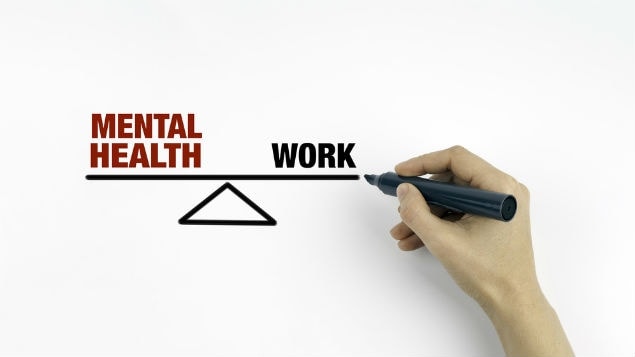How does work affect your mental health?
It’s mental health month, and in recent years an impressive amount of progress has been made surrounding perceptions and acknowledgement of depression, anxiety, and more. The average person will spend 90,000 hours at work over their lifetime, so it makes sense that for many people, their experience at work can play a huge role in their mental health. With that in mind, it may be time to reframe our thinking about mental health at work: How does the workplace environment itself affect your mental health, and is it possible to turn it into a positive effect?
For some industries, this issue is more critical than others. Depression and excessive stress are rampant among emergency services, public transport drivers, social workers and lawyers, but in the construction industry, suicide rates are alarmingly high. Construction workers are twice as likely to commit suicide than the general population, and the rate for young construction workers is even more concerning – a 2011 study published in the International Journal of Environmental Research and Public Health shows that 15-24-year-old males in the construction industry represent a suicide risk three times higher than other Australian males of the same age. They were also significantly more likely to show evidence of untreated psychiatric conditions preceding their death.
Dan Hinton, Group General Manager of St Hilliers says, “It’s not ok to not be ok. In construction it’s perceived as a sign of weakness and it’s not, it’s a sign of being human. We need to change the narrative and say to people it’s ok to feel a bit down, it’s normal.”.
We know that a healthy workforce means a productive and thriving business, but it can be tricky knowing how to manage that beyond offering employee support programs. There are many ways to foster a healthy and productive workplace environment – for example, setting reasonable and manageable workloads, and taking steps to ensure employees have the opportunity for an acceptable work life balance. Additionally, a culture of open feedback and where employees are encouraged and rewarded can help build a sense of shared purpose, and make employees feel appreciated and heard.
Aside from workplace conditions, another major reason people may be struggling with work-related depression is a lack of meaning at work. Rise Founder Ross recently interviewed ex-investment banker Nicola in this podcast, where she discusses candidly how her mental and physical wellbeing suffered after feelings of being unfulfilled while working in the finance industry, and the inspiring steps she took to make a change. Since leaving, “I don’t wake up in a cold sweat in the night worrying about work anymore, and I don’t get out of bed with a heavy lead feeling in my stomach and dread the commute to work”, Nicola said, later adding that “I’m much more me again, I have more energy and more vibrancy.”
Feelings of disconnect and purposelessness associated with a lack of meaning at work can have a serious impact on mental health over time. This is why at Rise, we’ve developed a framework that helps individuals and organisations lead with meaning. Like Nicola, taking the time to step back and re-evaluate the meaning you find in your work can be critical to caring for your mental health. This could mean analysing whether the values of the company you work for align with your own personal values; taking stock of, and acknowledging, the goals you’ve achieved that month – no matter how big or small – and recognising the contributions you make to the community through your work. These small and often overlooked points can build up to a greater sense of meaning at work, or in some cases a realisation that change is in order.
Remember to look out for your co-workers, check-in and ask if they’re ok and take your mental health seriously.






